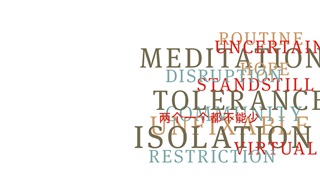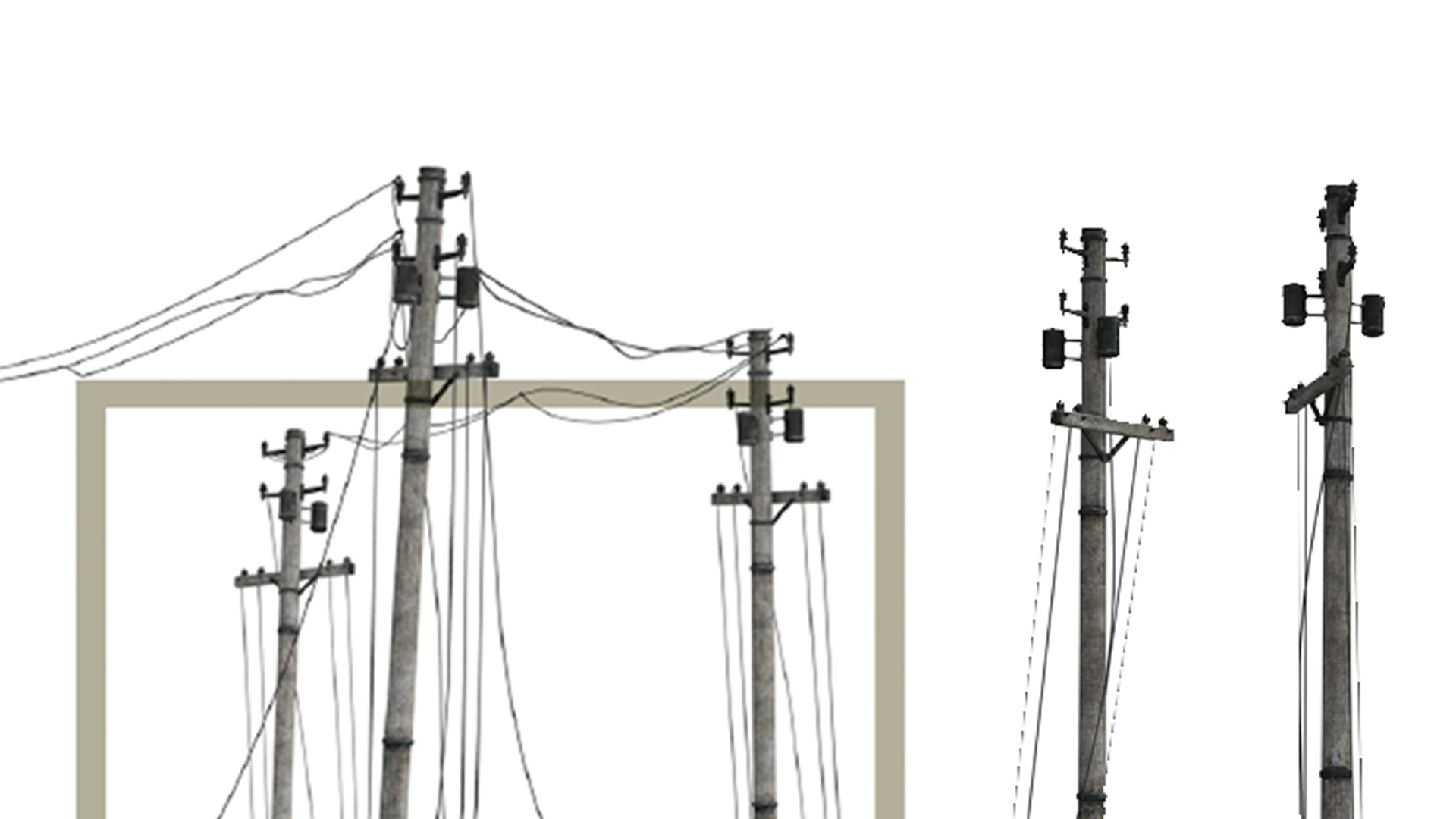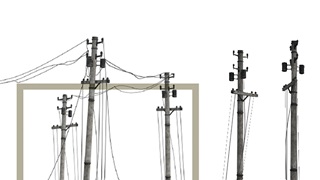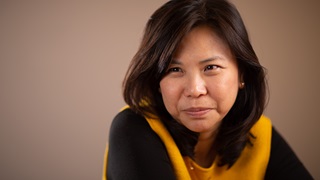
ESSAYS
In the time of pandemic | Issue 17 | 2020


—Reports filed by correspondents across the world—
In Manhattan, when the sidewalks and roads were empty the birdsong was louder. In a vacant Central Park, the birds walked about with chests puffed out as though finally they owned the ground, too. With few people or cars to watch out for on the streets, it was easier to notice the beauty of the large buildings—different colors and patterns of brick, or carved stone, ornamental balconies and friezes—or the brownstones, imitations of fancy European styles or plain-faced sandstone.
Early in the lockdown, along 79th Street on the East Side (a wide street become unpopulated), I passed by an older New Yorker, nattily dressed, her gray-streaked hair in a girlish ponytail, sitting on a portable folding-chair by an awninged lobby entrance, thoughtfully saying into her phone: “It’s very chilling. And it’s very lovely.”
When 9/11 occurred, I was in Israel on business. It was during the second Intifada. In the several days it took me to arrange my return home, the locals would say: we’re very sorry for your troubles; we sort of know what it’s like. I said to myself: wait, we’re usually the ones commiserating with them; we must be in real trouble. So, in conversations with friends there now, I wondered how they saw us this time. Perhaps as the pinnacle of the developed world’s urban life. And the sickest city in the world. How did this happen, they asked; and what is it like? I thought about how to describe it to them. Our general strategy is avoidance. Stay away from it, and hope it doesn’t come near you or yours. We’ve been lucky enough not to be struck (though it’s still lurking). I could relay what the TV or papers showed; but they could see that for themselves.
So I described how, the other night, I was strolling down Park Avenue, a broad, elegant boulevard. It was a pleasant enough evening, but no people were on the street and the buildings loomed larger than usual. A few blocks down was a fine small hospital. Because three of my children were born there, every time I would pass by, it always felt to me like the place from whence goodness came. I walked past the side street where the hospital’s entrance was illuminated, then south to the next corner where you could see its back. That street was surprisingly unlit, and by the curb stood a disinterested security guard with a cigarette. The air was brisk, and the hairs on the back of my neck felt especially attuned, maybe from the coolness, or it was the low mechanical hum. Out of the back of the building, extending like a pair of enormous white enameled batteries, were two trailer trucks. It seems to me now that, as I was peering down the street, time slowed down just a mite, and that it took me a few seconds, when in fact it was instantaneously that I said to myself: I know what those are.
COCKROACHES
I walk with my two young sons down a bustling street in Hong Kong’s Soho district. It’s a hot, humid and rainy day. The narrow road can only take cars travelling in one direction and the pavements on either side are crowded with people, piles of building materials, workmen’s tools and hardware stores’ goods which spill out onto the pavements. Navigating our way means walking single file and fast, joined hand in hand, weaving and twisting in amongst the over-stocked store fronts, the people and the general mess. It’s noisy and the warm smell of food is everywhere: Hong Kong lunchtime.
We are hungry, so we hurry at the pace of most of the Hong Kongers around us, who are eagerly rushing to the cha chaan teng or another local restaurant. We, however, are heading for Pizza Express today. We pause momentarily to gawp at the open-fronted hardware shops with their vast variety of goods for sale. They are like dark dens—it’s virtually impossible to see far into the interiors. Many items seem to have been there for years, covered in dust. We pass one gated doorway where the dust has piled up inches thick; the boys speculate it’s been unopened for ‘a hundred years’. You can buy anything useful on this stretch: a ladder, a lightbulb, a lucky waving cat. We pass a stone-cutting machine and we are fascinated that the blade is left open and unattended at the side of the street.
Our attention is caught by a team of men in work jackets lifting up a manhole cover at the side of the road. There couldn’t be anything more exciting for the boys. We watch in helpless fascination as they uncover the drain with fast-flowing water running under the road; several cockroaches the size of a boy’s hand scuttle around inside. One workman grins at us, his gold teeth glinting. We hurry on, suddenly aware of the many manhole covers littering the street and imagining all the giant cockroaches lurking right underneath our feet.
This is a city that never ceases from trade, nor from eating. We hurry on to eat, laughing, jumping over all the manhole covers as we go.
Chaim Wachsberger is a partner in New York and adjunct professor at NYU Law School. Sarah Stone is head of learning and development, Asia. First published in RE: issue 17 (2020)

Chaim Wachsberger in New York, Noni Shannon in Sydney, Natalia Mushinska in Moscow | Issue 16 | 2019

'I think it’s not a bad thing if in your younger days you come from nothing' | Psyche Tai in conversation with Ingeborg Alexander | Issue 15 | 2019
© Norton Rose Fulbright LLP 2025